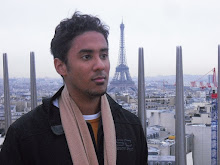Immanuel Kant is one of my favorite philosophers. In other posts I explain why. In this opportunity I want to share some biographies details about Kant´s Pietists life that can explain us why and how the early life of Kant toward him in the searching for the answers between freedom, God, human being, metaphysic, ethic, moral, and of course, religion.
Kant was born in the East Prussian city of Königsber (now Kaliningrad) at 5 am. 22 April 1724. He was the fourth of nine children, three of whom died in infancy. His mother, Anna Regina, died when he was thirteen. Kant acknowledged a lasting debt to her love and instruction. She seems to have been the first to recognize his intellectual gifts. It was her who decided direct him toward an academic education.
His father, Johann Georg, was a harness-marker, and died when Kant was twenty two. Kant spent his childhood in an artisanal suburb of Königsberg, growing up in an intensely Pietist milieu.
Königsberg in that time, was the second largest city in Prussia and the most economically and culturally dynamic in Germany. This allowed for a certain upward social mobility in the academic profession, owing to its particular economic and class structure.
Kant went to school at the Collegium Fridericianum, a private Pietist foundation, between 1732 and 1740, aided by the family pastor, Franz Albert Schütz, who was also a principal of the school.
Kant followed a rigorous and austere schooling in grammar and philology, accompanied by a régime of inflexibility piety. The curriculum of Kant´s School was filled with uninterrupted prayers and periods of devotional exercises, with periods of edification, sermons and catechizing. Theoretical classes were designed to insist upon the topics relation to religious and theological questions.
Partly under the influence of rational philosophy, he later became opposed in principle to religious ceremonies. In a letter of 1775 to J.C. Lavater he stated, “No confession of faith, no appeal to holy names nor any observance of religious ceremonies can help to gain salvation”. When he began as rector of the University of Königsberg, he was always “indisposed” when his official participation in religious observances was required.
The University of Königsberg was organized in the four traditional faculties, the three “higher faculties” of theology, law and medicine, and the fourth or “lower faculty” of philosophy. It is not known in which faculty Kant enrolled, but in spite great poverty he did not pursue the qualification for a bureaucratic post in the Prussian administration.
The three faculties of University of Königsberg in important order, in Kant´s times:
1. Theology
2. Law
3. Medicine
4. Philosophy
For much of the 18th century, the lower faculty was the most dynamic and innovative in the university. Because its curriculum was not adapted to the demands of the university, the range of subjects covered by philosophy included physics and geography, ignored by the higher faculties, and even religion, jurisprudence and medicine, which were their protected domains.
Importantly, for Kant, the faculty of philosophy was in the best position to respond to the contemporary debates of the Enlightenment, in which developments in science were having their effect upon questions of metaphysics and religion.
Source
Christopher Want and Andrzej Klimowski, INTRODUCING KANT, Icon Books UK.


0 comentarios:
Publicar un comentario